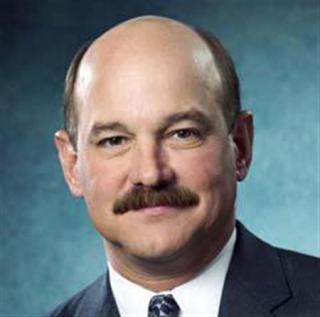Slowly but surely, we are learning more details about the bribery, conspiracy and cronyism that took place within the walls of CalPERS between 2002 and 2008. Prosecutors have had working theories since early 2013, but the case broke wide open last week when former CalPERS Fred Buenrostro pleaded guilty to charges of fraud conspiracy and bribery.
Now, he’s telling his story. Much of what he is saying we already know: he and his friend Alfred Villalobos (a placement agent) conspired to direct billions of dollars in CalPERS investments to a private equity firm called Apollo, for which Villalobos was working as a placement agent.
They also falsified documents to make sure Villalobos raked in massive finders fees to the tune of $14 million; Buenrostro was rewarded with a Lake Tahoe condo, free trips to Dubai and Hong Kong, and a cushy $300,000 a year job at an investment firm after his retirement from CalPERS.
But in a new twist, Buenrostro says he received $200,000 in bribes, delivered via paper bags and shoeboxes, for his trouble. Breitbart reports:
What was new Friday was the blockbuster admission that Buenrostro took $200,000 in cash from Villalobos. In his written plea agreement, Buenrostro said Villalobos paid him in three installments in 2007, “all of which was delivered directly to me in the Hyatt hotel in downtown Sacramento across from the Capitol.”
According to Buenrostro, Villalobos told him to be careful how he deposited the cash in order to avoid detection by banking authorities. “Villalobos told me to be sure to ‘shuffle’ the currency before making any deposit, as the bills were new and appeared to be in sequential order,” Buenrostro wrote.
Later, after he’d left CalPERS and the investigation into their relationship gained momentum, Buenrostro said he accepted an additional $50,000 from Villalobos, paid by check.
Buenrostro is hoping that by cooperating with the investigation, his prison sentence will be reduced. But that depends on how much he has to tell; after all, much of what he has said was already public knowledge. Ed Mendel of CalPensions has read the plea agreement:
Apart from providing the bogus disclosure documents for Apollo, the plea agreement has few specifics about what Buenrostro accomplished for Villalobos while taking gifts and cash from late 2004 until leaving CalPERS in May 2008.
Would Buenrostro tell what success he had in influencing specific CalPERS investment decisions? Does he know if confidential information helped Villalobos, who received at least $50 million in fees, get specific clients seeking CalPERS investments?
What additional information, if any, federal prosecutors may want is not mentioned in the plea agreement.
But there are hints of a larger conspiracy here. Is it possible other CalPERS board members were in on it? Or is Buenrostro simply dropping half-truths to improve his bargaining position with authorities? Again from Mendel:
The Buenrostro plea agreement twice uses the phrase “I did knowingly and intentionally conspire with Villalobos and others.” Whether “others” refers to persons not yet named or is just a legal catch-all term is not clear.
An oddly veiled incident briefly described in the plea agreement seems to suggest that Villalabos used undue influence, if not small bribes, to get the CalPERS board to approve a pharmacy benefits contract.
“In approximately 2005, I observed Villalobos provide valuable casino chips to certain (now former) members of the CalPERS board as well as my wife before the board considered a proposal from Health Care Company No. 1 in connection with CalPERS’ health care benefit program,” said Buenrostro.
Without naming the company or board members, Buenrostro said he saw two of the board members recommend a contract with the company in a CalPERS committee, and then at the full CalPERS board all three chip recipients voted for the contract.
A similar incident is described with names and more detail in a special review of placement agents done for CalPERS by the Steptoe & Johnson law firm and Navigant Consulting, costing $11 million and issued in March 2011.
In 2004, Medco Health Solutions, which lost the CalPERS pharmacy benefits contract several years earlier, hired Villalobos as a consultant for $4 million, said the special review.
Later that year three CalPERS board members — Charles Valdes, Kurato Shimada and Robert Carlson — met with Villalobos, Buenrostro and the Medco CEO, David Snow, at Villalobos’ home at Lake Tahoe.
The five men (excluding Snow) had served together on the CalPERS board ten years earlier, said the review. Buenrostro was hired as CEO in 2002 with the support of Valdes, Shimada and Carlson.
“Valdes also reportedly joined Buenrostro and Villalobos at casinos local to the Villalobos home, where he and others are said to have accepted hundreds of dollars in playing chips from Villalobos while there,” said the review.
“We understand that the chips were offered to Valdes, Buenrostro’s wife at the time, and others to allow Villalobos more time to speak with Buenrostro alone.”
The review said “Shimada also reportedly joined Buenrostro, Valdes and others on visits to casinos local to the Villalobos home and has, at different times, denied and acknowledged accepting playing chips from Villalobos while there.”
Valdes left the CalPERS board in 2009 without seeking re-election.
Shimada resigned from the board in 2010. In 2007, he was the head of a CalPERS committee that rejected a proposal to disclose placement agent fees associated with CalPERS investments.
